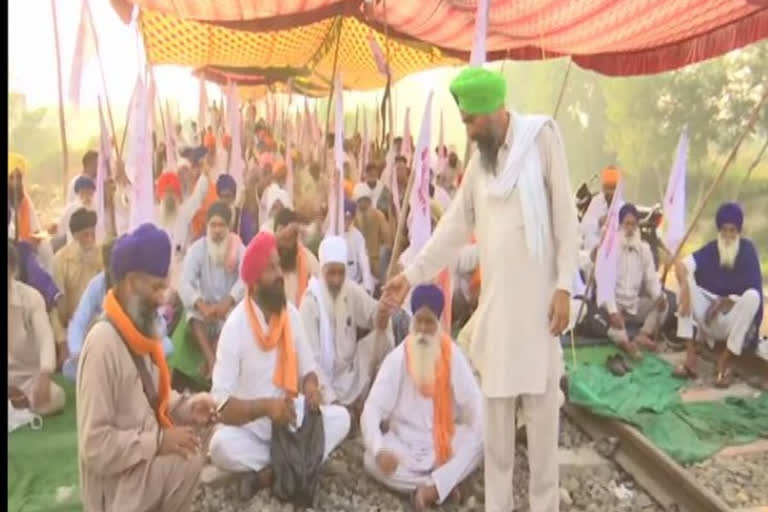New Delhi: In a state that was near-devastated by a 15-year-long reign of terror (1980-1995) and where of late the old demand for ‘Khalistan’ is desperately trying to rear its head, the vociferous protests by the peasantry may be a sign of bigger trouble up ahead unless addressed.
“The political context in which passions are being inflamed makes it even more urgent that New Delhi assuages the angst of the peasantry. There are reports of the ‘Khalistan’ movement returning to Punjab. The prevailing agrarian distress will prove to be fertile grounds for its revival,” says Prof Kumar Sanjay Singh, who teaches history in Delhi University and has studied peasant movements and conflict situations.
“Only those who are oblivious of historical realities would ignore the linkages in the 1980s between agrarian distress and the ‘Khalistan’ movement.”
In the course of the largely-rural ‘Khalistan’ movement, more than 21,000 people died, thousands more injured and a generation psychologically scarred including a huge component of the rural community with a farming background.
Sharing similar concern is a prominent Punjab farmer leader: “Farmers’ agitations will lose steam today or tomorrow. Youth and the people will go back disheartened and lost. With no jobs around and discontent rife, a fertile ground has been created for secessionist elements to take advantage of the situation.”
“One must remember, it was a similar situation when a march from Punjab to Delhi was stopped during the 1982 Asian Games in New Delhi. It led to huge ramifications. The same thing is playing out now. The tipping point is still not there but a situation is being created for that tipping point to arrive,” he added, declining to be named as he is involved with the government at various levels.
Also read:Protesting Punjab MLAs detained by Delhi Police
On Saturday, thousands of farmers from Punjab and Haryana managed to reach the outskirts of Delhi evading police all along on the way after pulling down barricades. The ‘Delhi Chalo’ march is to protest new farm laws passed by the government.
“Since the last two-three months, suddenly a number of songs have been sung with secessionist overtones and about 1984 (the year of anti-Sikh riots). Pakistan will use it. In Chandigarh, everyday conversations of drones coming in with weapons, pamphlets and other things from the border areas, is very normal nowadays in the knowledgeable circles. It has been communicated to New Delhi many times.”
“Terrorism affected the economy. The Punjab terror phase resulted in a lot of capital flight from the state especially among Hindu Punjabis who began investing in Haryana, Rajasthan, Himachal Pradesh and adjoining places. Also that phase imparted a sense of invincibility to officialdom and the bureaucracy including the police that exist till now.”
“The ongoing farmers protest is at present driven by leaders of farmer unions who have capitalized on the rampant discontent. But there is a feeling that the union leaders are losing control of the agitation and on the protesting youth. While New Delhi is considered to be not heeding to the demands, the state government has not been able to meet the people’s expectations. So there is a political vacuum in the state,” the farmers’ leader asserted.
